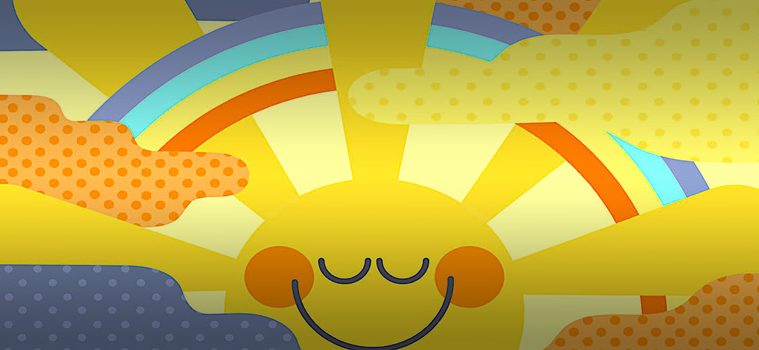PUT ON A HAPPY FACE –
March 4, 2021 – Few of us want our negative moods to drag others down. But in practice, a lot of people follow a theory of happiness that can be summed up in the famous line from airline-safety videos: “Put on your own mask before assisting others.” In other words, you can’t make others happy unless and until you are happy yourself. I get the reasoning: Unhappy people often bring wretchedness to those around them. Think of the most miserable boss you’ve had, and you’ll know what I mean. None of us wants to be the purveyor of poison, especially toward those we love. Fortunately, research also shows that we have more control over how we affect others—and ourselves—than we might assume. The key is to act like a happy person would, even if you don’t feel like it.
Last year, researchers at the University of California at Riverside asked human subjects to behave in either extroverted or introverted ways for one week. They found that those purposively acting extroverted—which decades of research have shown is one of the most common characteristics of happy people—saw a significant increase in well-being. (Meanwhile, acting introverted led to a decrease.) Similarly, spending money on others and volunteering have both been shown to raise one’s own happiness levels.
One plausible explanation for why this works is that prosocial behaviors induce a cognitive dissonance—I feel unhappy, but I am acting happy!—which people resolve subconsciously by feeling happier. Richard Wiseman, a psychologist at the University of Hertfordshire, in the United Kingdom, calls this the “As If Principle”: If you want to feel a certain way, act as if you already do, and your brain will grant you that feeling—at least for a while.
In common parlance, “Fake it ’til you make it.”
I am not suggesting here that “Fake it ’til you make it” is a substitute for traditional medical treatment for depression, of course. Norman Rockwell, for instance, was in formal therapy most of his adult life. But his happy paintings were clearly part of his treatment. As Rockwell’s biographer Deborah Solomon points out, “He was painting … his longing.”
So paint your longing. Even if not literally, you can use the Rockwell formula in your own life to bring more joy to yourself and the people around you when you are down.



